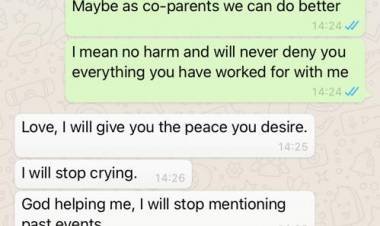Why Stay in An Unhappy Relationship?
An unhappy relationship feels painful and hopeless. It can cause resentment and profound loneliness. You get caught up in the same vicious cycle with no end in sight. You (wrongfully) compare your relationship to pictures of seemingly blissful couples on social media and wish you had the same.
Often, couples who feel they can’t leave an unhappy relationship have terrible fights. They know how to push the right buttons and use words that cut deep – and do it intentionally. It’s a battle of who can yell the loudest and who can slam the door the hardest.
These couples also engage in defensiveness, both trying to prove their point, as irrelevant as it may be. “No, it was Tuesday, not Monday.” You keep the score. “I did this for you last week, and now you owe me.” Then you attack! “What’s your problem?” or “Why do you always/never do this?” or “You’re so thoughtless!”
Sometimes there is tense, silent treatment. You avoid talking to each other for days or sometimes longer. Confrontation is too risky, and it feels like you’re walking on eggshells. Your guard goes way up, and you continue to coexist as roommates. Why should you be the first to initiate communication? You feel stuck – like you can’t leave an unhappy relationship.
You look at the months you have spent together, the years before that, and other relationships you had that really didn’t work out. You look at your age. Do I want to walk out of this and start all over with another stranger? What if I am the one at fault? What if there is something wrong with me? You want to call it quits but you don’t want to go back to being alone
Being all by yourself was not a prospect you look forward to. Even though you are in a miserable relationship, at least you have someone to fight with and sometimes the brief make-up sessions after your long fights still offer a bit of hope
If your partner is as neglectful as a person can be. Workaholics, ambitious, controlling, made huge decisions without ever talking to you about it, no interest in romance, lack of respect, and he or she could be prickly, shut down, and mean. if the relationship is not a safe place for my heart. You begged your partner to change, he or she said they would, but the day never came. Eventually, you come to the inevitable conclusion that you just may not be the right fit but instead of moving on, you cling on to an unexplainable hope and you find yourself right in the never-ending cycle of we would get married one day even though every indication shows you shouldn’t get married to that person because there was nothing to look forward to as a couple.
Why do I cling to a partner who makes me cry?
Why do I hold on to a partner who obviously doesn’t love me anymore?
Nobody consciously decides to be unhappy. But unconsciously there can be a different story playing out.
- Low self-esteem.
We might have unconscious beliefs that we simply aren’t worthy of good things or are flawed. Our thoughts can sound like: “but this might be the best I can do” “nobody else will ever love me so I should stay” “I shouldn’t be too picky” “I’m too old to be single”. Even “I can’t financially afford to leave this relationship” can be low self-esteem in disguise, showing a lack of belief in your own skills and creativity.
In fact, low self-worth can be the reason we attract certain partners in the first place. We unconsciously advertise our low self-esteem, such as making jokes in which we put ourselves down, agreeing with everything someone says, jumping into bed with them too quickly, or having defeated body language. These signals attract those who belittle and control others or who want someone self-sacrificing to take care of them.
- Anxiety
It might sound illogical. Surely if a partner made you anxious, would you leave? Not necessarily. For starters, if you grew up in a home environment that left you anxious, with unstable parents, this might be what feels normal or even like ‘home’ and ‘love’ to you. You might think love has to be ‘exciting’, not realizing that the buzzy high you feel is anxiety from picking unreliable or unsafe partners. Anxiety triggers our ‘fight or flight’ mode. which releases chemicals like adrenaline and cortisol into our body. And the buzzy feeling we are left with can be quite addictive. If we try to leave our partner, and suddenly our brain no longer feels in danger, we can crash, feeling low and bored. And convince ourselves to stay in a bad relationship to feel ‘high’ again.
- Attachment.
Anxious attachment means we deeply long for intimacy and closeness. But the more we try to get it, the more anxious we get. And the more anxious we get, the more we can hold on or even get clingy. Why would this happen? According to attachment theory, it’s because our main caregiver was unreliable. They only gave us love and positive affection or made us feel safe part of the time. Perhaps we had to ‘earn’ this love by being a ‘good’ and ‘obedient’ child, always living on eggshells so we’d be approved of. And we carry this nervousness and vigilance around love into adulthood.
- Fear of Abandonment and Borderline Personality Disorder.
If we are afraid of being abandoned, we can end up in a ‘push-pull’ pattern. Our fear leads us to be so vigilant that we misread the other person and push them away first to avoid pain. When we realize they weren’t actually abandoning us, we panic and do everything to ‘pull’ them back. The highs and lows of this pattern quickly become highly dramatic, addictive, and all-consuming. We feel like we can’t live without the other person, even if we aren’t even sure anymore, we love them at all. This pattern, of drama and volatility in a relationship, driven by fear of abandonment, is part of having borderline personality disorder (BPD).
- Trauma bonding.
Trauma bonding means we get hooked on a cycle of abuse followed by compensation, such as a partner that hits us then buys us flowers and says they love us. Our brain essentially becomes addicted to waiting for that little positive moment. If we had trauma in our childhood, our brain can already be predisposed to this addictive way of bonding, meaning we are more likely to choose an abusive partner.
WHY AM I THE TYPE OF PERSON WHO STAYS IN AN UNHAPPY RELATIONSHIP?
This tends to be because of your experiences and learnings as a child. It might be that you learned by example to choose difficult relationships. If you watch a parent stay in a bad relationship, it’s more likely that you will, too. Or it can be down to not getting consistent love, safety, and attention and having an attachment issue. Childhood trauma is also a common cause of difficulties with relationships as an adult. And if your childhood trauma was abuse, you likely have a hidden core belief that you are unlovable so stick out relationships where you feel hated. In fact, experiencing sexual abuse as a child is a common symptom of those with borderline personality disorders.
How do you know when it’s time to leave a relationship?
What are the ways to know when to leave a relationship?
Knowing when to call it quits in a relationship is tough. Here’s the deal – if you’re always feeling miserable, can’t talk without arguing, have totally different life goals, or deal with any kind of abuse, it’s time to seriously think about ending it.
Trust issues, feeling like you can’t be yourself, and never resolving problems are big warning signs too. And if you’re the only one trying, or if the intimacy’s gone, it’s worth considering.
Sometimes, your gut feeling is spot on – if it tells you, it’s time to go, don’t ignore it. Remember, your happiness matters most.
Finding the courage to leave a bad relationship
Once you have seen the ways to know when to leave a relationship, it’s natural to feel the urge to leave, but it’s not easy. Leaving a bad relationship takes real guts. It’s like standing at the edge of a cliff, unsure of what’s next but knowing deep down that it’s the right move.
Often, fear of the unknown keeps us stuck in something that’s clearly hurting us. The courage to leave comes from realizing your worth and embracing the idea that life can be better on the other side. It’s about accepting that you deserve happiness and respect.
Sometimes, you might need support from friends, family, or a therapist to find that strength. But when you finally make that leap, you discover a newfound freedom, self-love, and the chance to build a healthier, happier future.
What are the signs of a dying relationship?
So, what are the major ways to know when to leave a relationship?
In a struggling relationship, there are often unmistakable signs that it’s on the rocks. Here are some common indicators of a dying relationship:
- Lack of communication: When you and your partner stop talking or the conversations become shallow and distant, it’s a clear red flag.
- Constant frustration: If you find yourself frequently irritated or arguing over little things, it’s a sign of growing tension.
Your partner treats you like a burden, is unappreciative of your efforts and acts as if he or she is doing you a favor by being with you.
You cannot trust your partner to be alone without cheating on you or to be happy by himself or herself independent of you.
You cry all the time and despite how sad you are your partner does not see it.
He or she considers your sadness a sign of weakness and manipulation and dismisses your pain as blackmailing them for affection.
- Emotional disconnect: When you no longer feel that emotional connection, or when intimacy wanes, it’s a sure sign of trouble.
- Different paths of life: If your future goals and values no longer align, creating a rift in your plans, the relationship might be on its last legs.
- Neglect and indifference: When you stop making an effort to spend time together or show affection, it’s a sign that the relationship is withering away.
-GSW-
















Comments (0)
Facebook Comments (0)